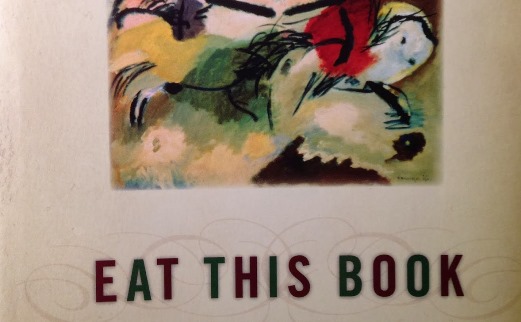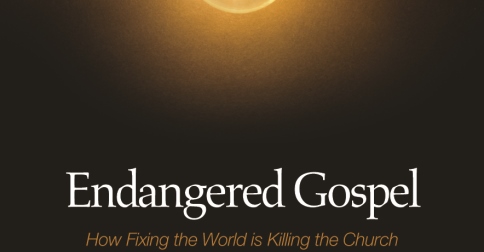I’ve been writing about lectio divina this week, as part of my next book project on Reading for the Common Good. I’m fascinated by the early monastic practice of (almost always) reading aloud, which not only was common practice in that day, but also served to engage the body as well as the mind in learning and meditating upon scripture. As part of my research, I encountered the following passage from Eugene Peterson’s Eat this Book.
I had never really thought about how important the spoken word is and how the written word is a reduction of the spoken word, eliminating such important context as body language, tone of voice and even background noise.
I find myself in the odd predicament that I resonate with Peterson’s preference for the spoken word, and yet here I am having devoted so much of my life to the written word (as editor of The Englewood Review of Books) and in the process of writing (yes, writing, not speaking) a book about reading. The only sense I can make of this situation is that I emphatically believe that reading is only helpful insofar as it guides us deeper into conversation, in our churches and neighborhoods. In our late modern age in which we are –to use the words of Neil Postman — amusing ourselves to death, the discipline of reading, and particularly reading that is resonant with the scriptural story and our embodiment of Christ in our local church communities, can be a bridge out of the self-oriented land of amusement (note the roots that mean “not thinking”) and into a conversational life in which we are seeking to hear, to speak and to discern the all-reconciling word of God in our congregations and our neighborhoods.
Here is the passage from Peterson. I highly recommend reading from the middle of this page (starting with “One more caveat lector…”) through the middle of page 87 (“cragginess of the prophets… and Jesus”).
What do you think? Is Peterson right? Is the spoken word preferable to the written one? And if so, how do we further cultivate local cultures that deeply value conversation and the spoken word?













